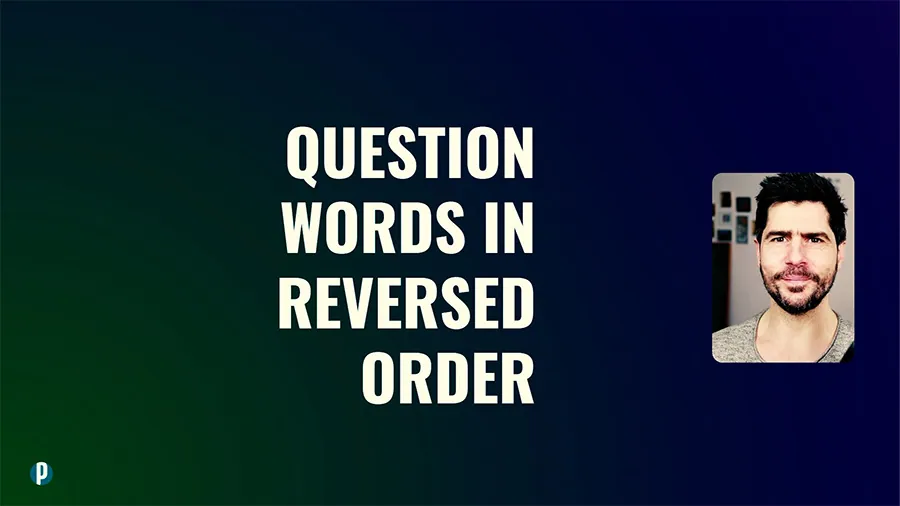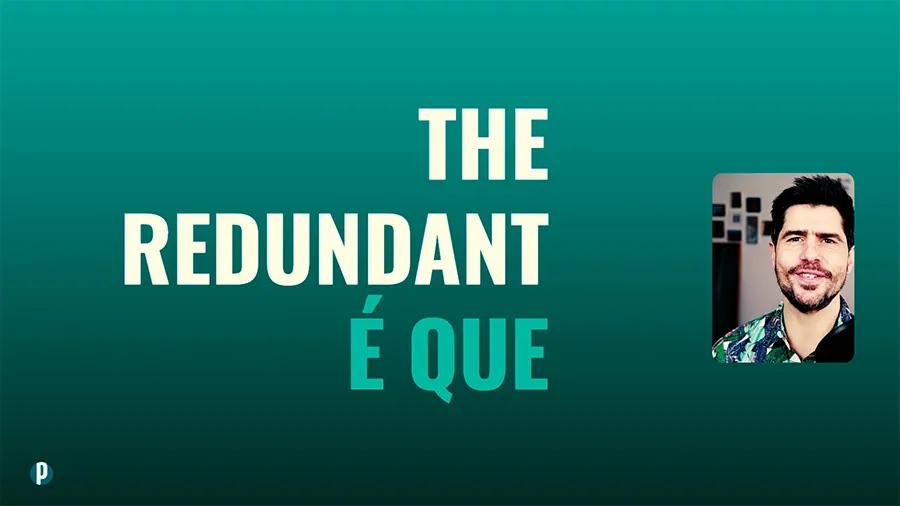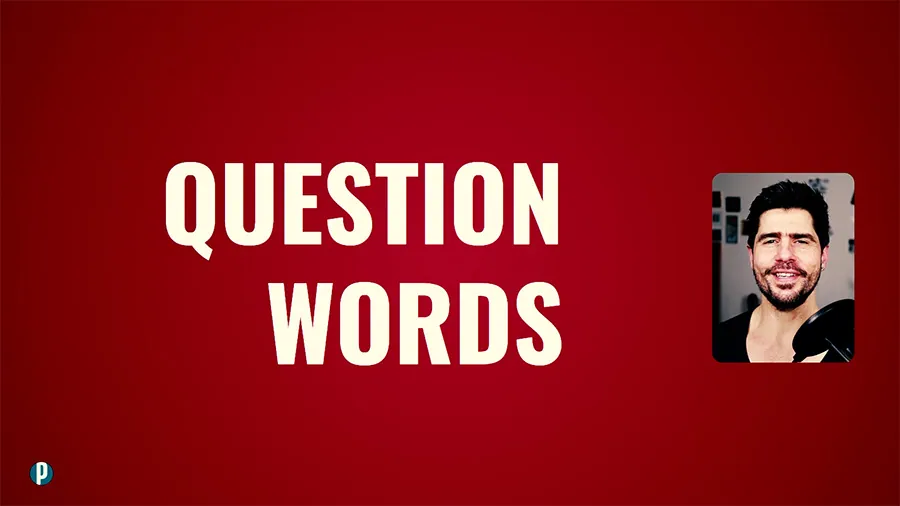
Portuguese Question Words
Intrepid language learners start using Portuguese nearly from day one. I love the attitude and hope you are one of them. Besides bravery, to keep conversations going you need to ask questions.
Put another way, you need to know well the question words and how interrogative sentences work in Portuguese and that’s what this post is all about. We start with open-ended questions – those initiated with a question word – and then we go over to the “yes-or-no” type. Read on.
Open-ended questions
Question words
| Question Word | Usage Example |
| o que what | O que fizeste hoje? What did you do today? When standing alone, this question word is pronounced with a more open e-sound, and thus spelled with a circumflex accent on it: O quê? What? When que is followed by a noun, you drop the o: Que dia é hoje? What day is it today? |
| como how | Como te correu o dia? How was your day? |
| quando when | Quando voltas do Brasil? When are you coming back from Brazil? |
| onde where | Onde estás? Where are you? Aonde vais? Where are you going? |
| quem who | Quem ganhou o jogo? Who won the match? |
| porque why | Porque não casas comigo? Why don’t you marry me? Like o quê, when standing alone, this question word is pronounced with a more open e-sound, and thus the circumflex accent: Porquê? Why? Also, the word porque means “because”: – Porque não casas comigo? – Porque não estou apaixonada por ti. – Why don’t you marry me? – Because I am not in love with you. |
| quanto how much | Quanto é? How much is it? Quanto custa? How much does it cost? |
| quantos/quantas how many | This question word conforms to the gender of the noun it refers to: Quantos pães comeste? How many bread rolls did you eat? Quantas maçãs compraste ontem? How many apples did you buy yesterday? |
| qual/quais which | This question word conforms to the number of the noun it refers to: Qual preferes, a saia verde ou a amarela? Which one do you prefer, the green skirt or the yellow? Quais preferes, as camisas de lã ou de algodão? Which ones do you prefer, the cotton or the wool shirts? |
Now, let’s look at some aspects of asking questions in Portuguese that you want to be aware of.
Reversed word order
Voltas do Brazil quando?
Estás onde?
Não casas comigo porquê?
No auxiliary
Onde puseste as chaves?
Where did you put the keys?
The redundant “é que”
(1) Como te chamas?
(2) Como é que te chamas?
What’s your name?
(1) Onde vais?
(2) Onde é que vais?
Where are you going?
Qual é o teu prato favorito?
Qual é que é o teu prato favorito?
What’s your favorite dish?
Yes-or-no questions
Declarative
Tu estás no Porto.
You are in Porto.
Interrogative
Tu estás no Porto?
Are you in Porto?
No auxiliary
O carro tem gasolina suficiente?
Does the car have enough gas?
Ele já chegou de Inglaterra?
Did he already arrive from England?
Further reading! Learn more about Portuguese verb usage compared to English: Portuguese Verb Usage and Tenses: A Practical Guide Anchored to English.
Answering a yes-or-no question
– Estás na Suécia?
– Sim, estou. / Não, não estou.
– Are you in Sweden?
– Yes, I am. / No, I am not.
– Já viste este filme?
– Sim, já vi. / Não, ainda não vi.
– Have you already seen this movie?
– Yes, I have. / No, I haven’t.
Question tags
Affirmative sentences
Ele gosta de cinema, não gosta?
He likes cinema, doesn’t he?
Tu dormes muito, não dormes?
You sleep a lot, don’t you?
Ele gosta de cinema, não é?
He likes cinema, doesn’t he?
Tu dormes muito, não é?
You sleep a lot, don’t you?
Negative sentences
Ele não gosta de pintar, pois não?
He doesn’t enjoy painting, does he?
Tu não fumas muito, pois não?
You don’t smoke that much, do you?
[/pms-restrict]

Olá! I'm Pedro and I'm your Portuguese teacher.
Ready to unlock the beauty of European Portuguese? Portuguesepedia is your key! This all-in-one platform provides a wealth of learning resources, from bite-sized video lessons to immersive idiomatic dips. Perfect your pronunciation and aural comprehension with listening drills and solidify your grammar with in-depth articles. Start your Portuguese journey today!
Share this article
Get my guide "Key Strategies to Learn Portuguese" for FREE.



